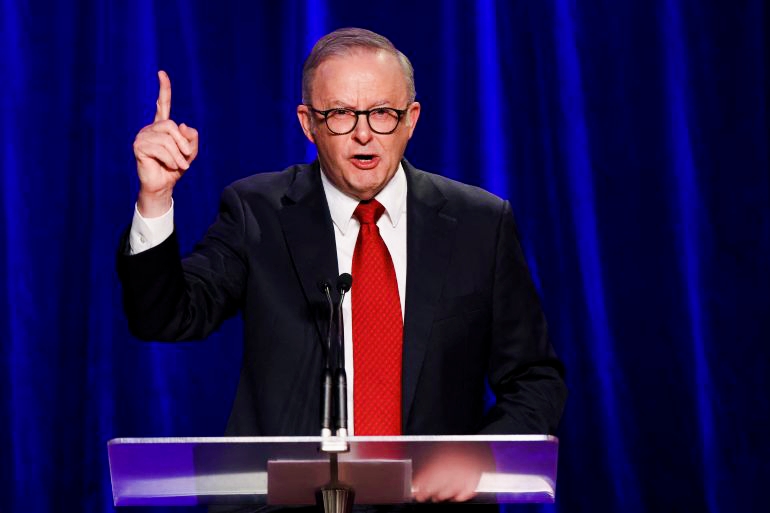In an unprecedented shift in Australian foreign policy, Australian Prime Minister Anthony Albanese announced that his government will officially recognize the State of Palestine during the upcoming session of the United Nations General Assembly next month, emphasizing that the decision comes amid the escalating humanitarian crisis in Gaza and the "ongoing denial" by Israeli Prime Minister Benjamin Netanyahu of that suffering.
In an interview with the official Australian ABC channel, Albanese revealed details of a phone call that took place last Thursday with Netanyahu, where he said:
"Netanyahu repeated what he had said publicly before, which is the denial of the catastrophic consequences faced by the innocents in Gaza," pointing out that Netanyahu's government's reluctance to listen to its allies prompted Australia to make its decision.
The new Australian stance comes just one day after Albanese announced his country's intention to recognize the Palestinian state, joining major countries like France, Britain, and Canada, which have taken similar steps, amid increasing international pressure on Israel.
Albanese clarified that Australia's recognition of the Palestinian state is conditional on specific commitments made by the Palestinian Authority, the most significant of which is that Hamas should have no role in any future Palestinian state.
The Australian Opposition: The Decision is a "Threat to Relations with America"
For her part, Susan Ley, the leader of the right-leaning opposition, expressed her strong rejection of the decision, considering it contrary to the traditional policy of the two main parties in Australia towards Israel and Palestine.
Ley warned that this step could "jeopardize Australia's relationship with the United States," confirming in an interview with 2GB radio that recognition of a Palestinian state should be "the result of a peace process, not a precursor to it."
* A Change in the General Australian Mood
It is worth noting that Albanese, who has led the ruling Labor Party since winning the general elections last May, had announced last month that he would not set a timeline for recognizing the Palestinian state, amid warnings of a division in Australian public opinion, especially given the presence of large Jewish and Muslim minorities within the country.
However, the general mood has witnessed a radical shift in recent weeks, especially after Israeli statements regarding the intention to impose military control over Gaza, alongside increasing UN reports about hunger and malnutrition among civilians.
Tens of thousands of Australian protesters took to the streets this month in massive rallies across the Sydney Harbour Bridge, demanding the introduction of humanitarian aid to Gaza and an end to the escalating crisis.
Jessica Ginour, a professor of international relations at Flinders University, stated that the Australian decision "reflects a change in public sentiment," explaining:
"The majority of Australians want an urgent end to the humanitarian disaster in Gaza, and this is what prompted the government to act."
* New Zealand Considers Recognition ... Amid Internal Criticism
In a related development, New Zealand is currently considering taking a similar step to recognize the Palestinian state, at a time when this move has faced sharp criticism from former New Zealand Prime Minister Helen Clark, who expressed her reservations about the decision.
Thus, Australia has joined a growing international wave seeking to recognize a Palestinian state, amid increasing calls to put an end to the ongoing war in Gaza and to provide a fair and comprehensive political solution to the Palestinian issue.

